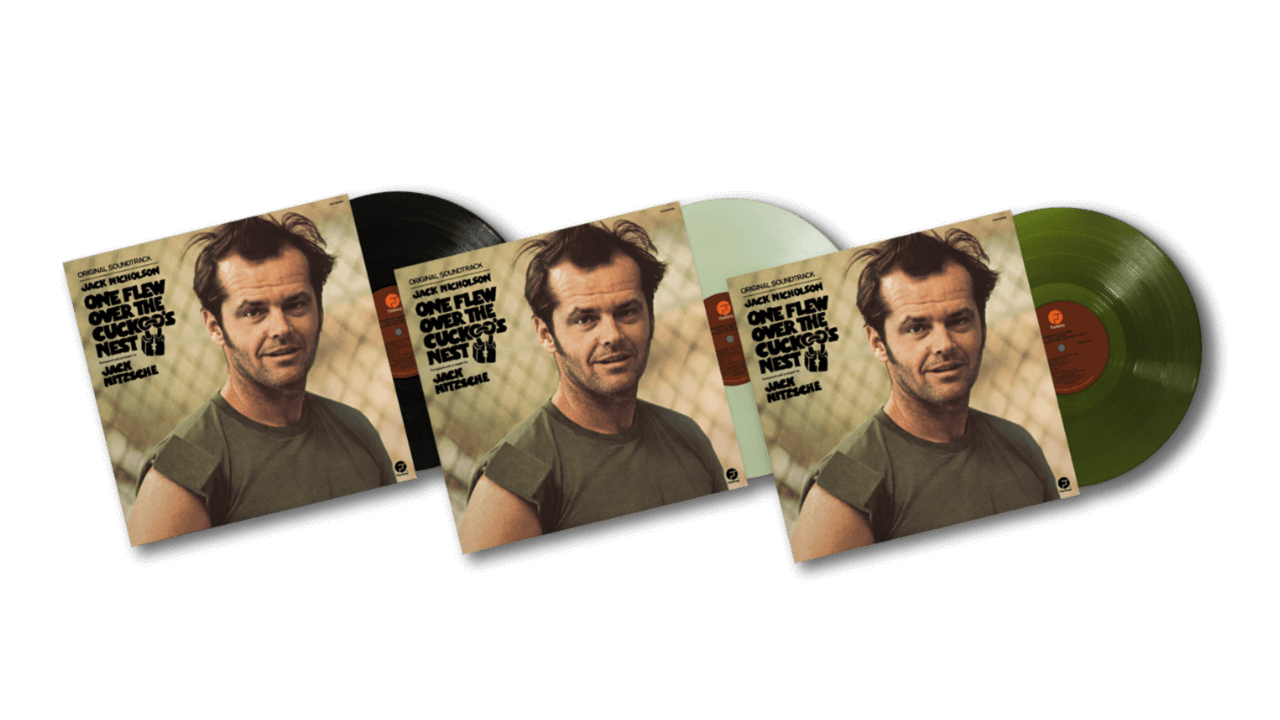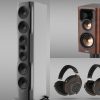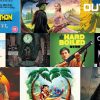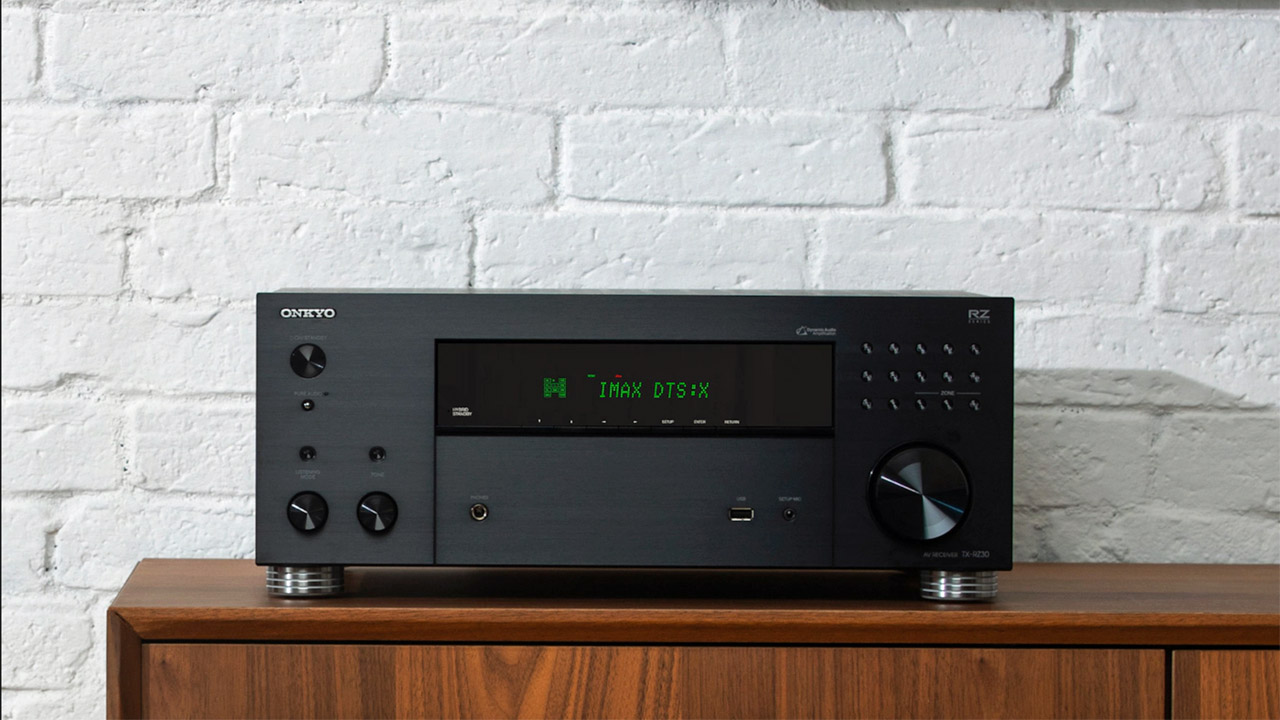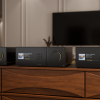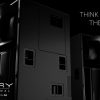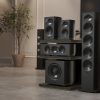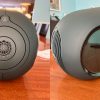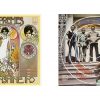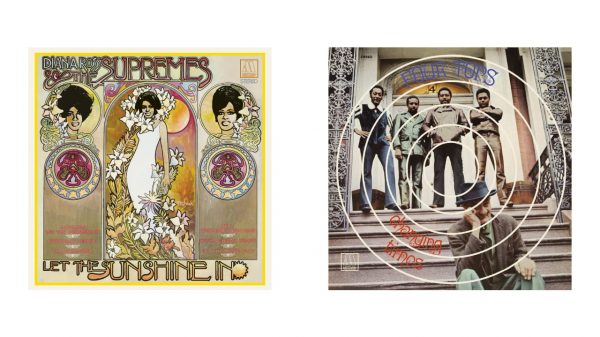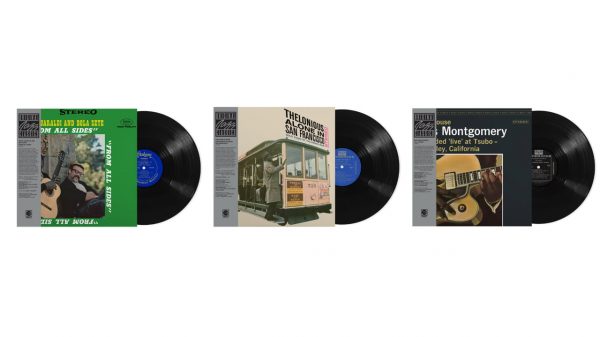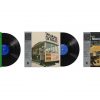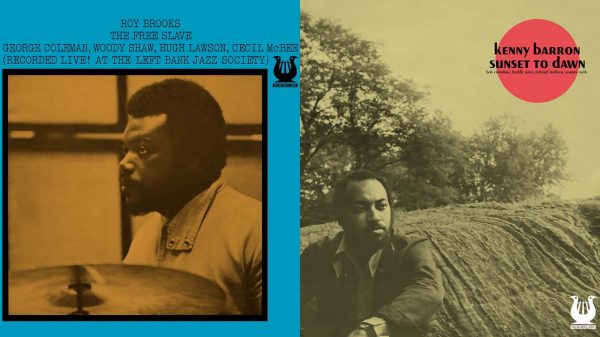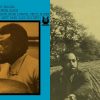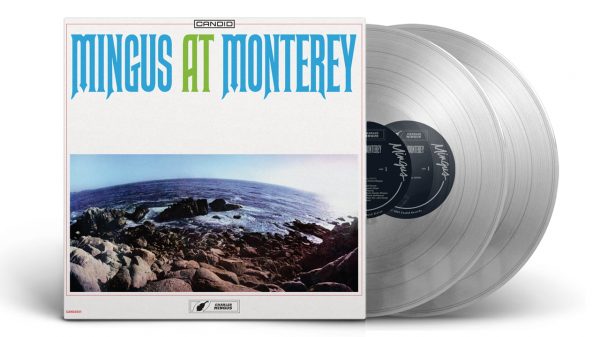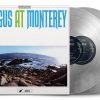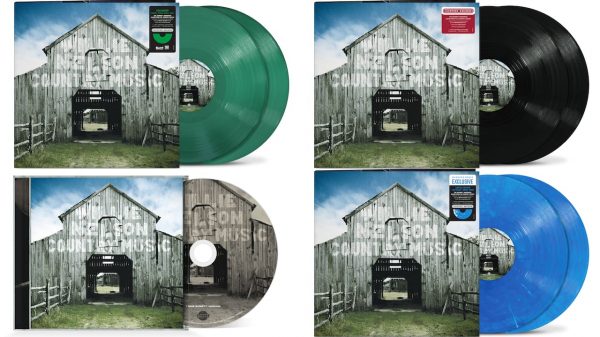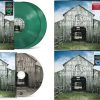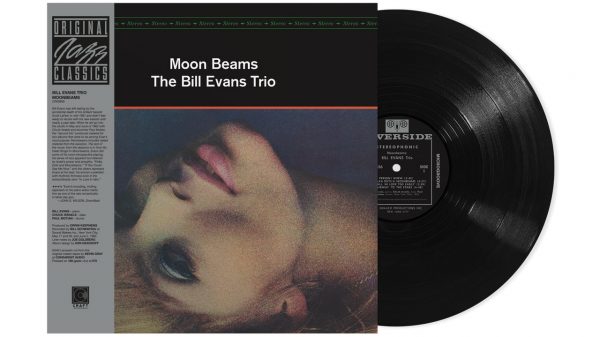Fifty years on, One Flew Over the Cuckoo’s Nest still cuts deep. Varèse Sarabande and Craft Recordings have resurrected Jack Nitzsche’s Oscar- and GRAMMY-nominated score on a newly remastered AAA-cut vinyl, pressed from the original master tapes by Kevin Gray. But this isn’t nostalgia—it’s a reminder of how raw and uncompromising the film still is.
Jack Nicholson’s McMurphy wasn’t a hero so much as a mirror; Louise Fletcher’s Nurse Ratched embodied the quiet brutality of control; and the supporting cast—Brad Dourif, Will Sampson, Danny DeVito, Christopher Lloyd—felt too real to be fiction.
Nitzsche’s music threads through all of it like a diagnosis: detached, precise, and terrifyingly human. This isn’t just a soundtrack—it’s the sound of rebellion breaking against the institution’s walls and echoing long after the doors slam shut.
I know the walls this story speaks to. I’ve been inside them. Institutionalized for bipolar disorder. I’ve sat across from my own Nurse Ratcheds, the ones who talk about “compliance” like it’s salvation and measure your worth in milligrams. Those days carved something into me that never really healed. This music drags it back—not for pity, not for closure—but because pretending it didn’t happen would be the bigger lie.
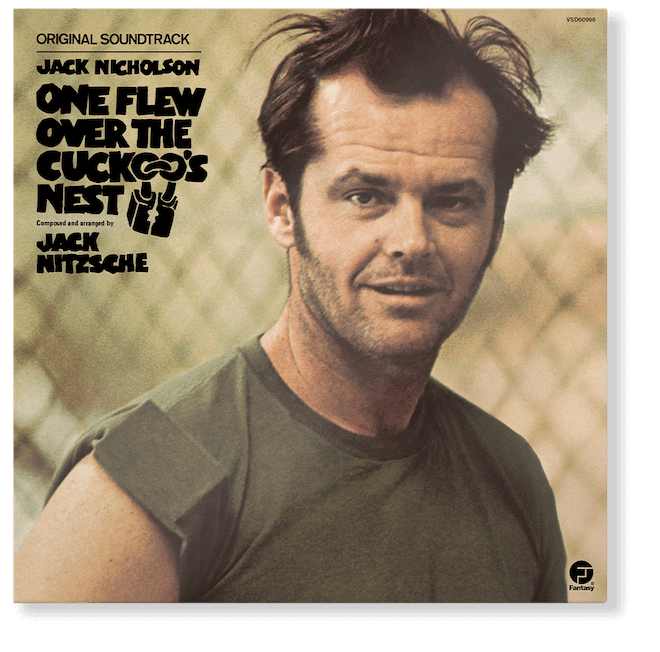
This new vinyl release finally gives Nitzsche’s work the format it deserves—raw, analog, and stripped of pretense. It doesn’t just play; it stares back. And if you’ve ever spent time in a place like that, you know the ones who stare back usually mean no harm.
They’re lost in their own fog, just trying to keep the noise down. But there’s always one—the guy who’ll steal your extra roll off the tray, tear the cover off your book because the words won’t sit still for him, or jab at you with a plastic fork because you made the mistake of not looking away fast enough.
Nobody throws sinks through windows. Not in the real world. You’d break your hands, maybe your neck. And even if you got it open, you’d never make it to the ground alive. Nitzsche understood that—the sound of wanting to escape but knowing damn well you won’t.
On Qobuz, the French Fantasy Records version already sounds razor-sharp at 16-bit/44.1kHz. But this new analog pressing is something different. You can feel the tension, the static under the strings, the quiet rage in the silence between notes. It’s not an easy listen—and it shouldn’t be. Nitzsche’s score doesn’t comfort; it remembers. And fifty years later, that’s exactly what we need it to do.
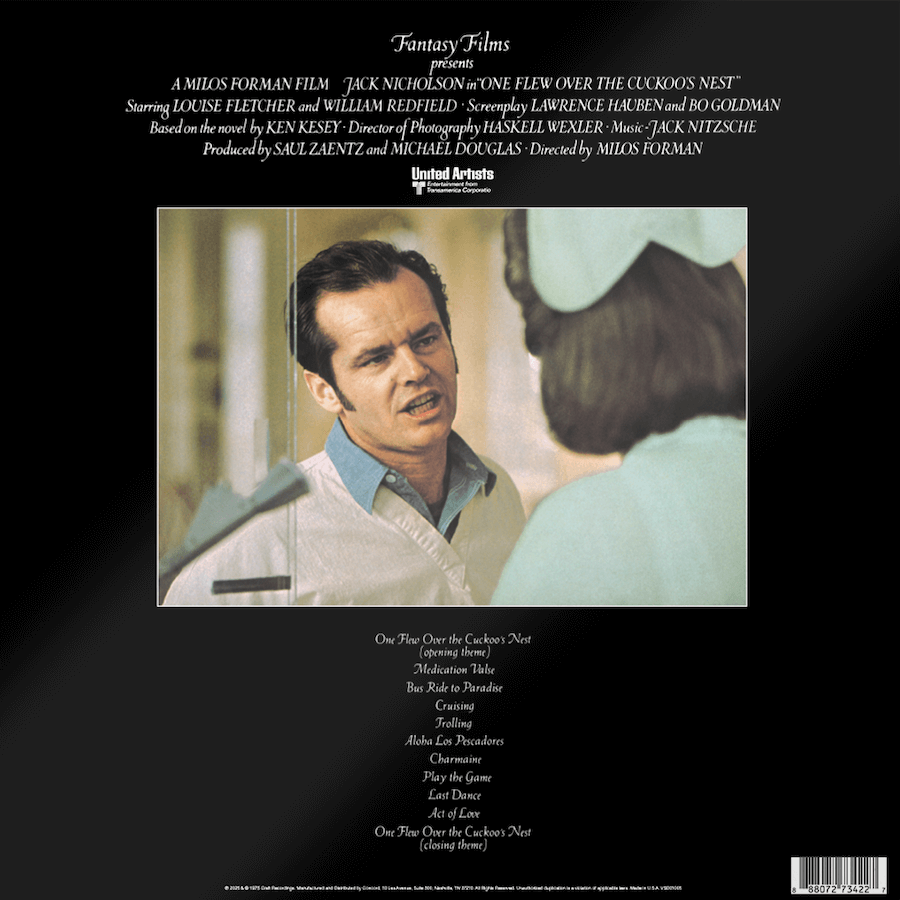
Available now, the 50th-anniversary One Flew Over the Cuckoo’s Nest soundtrack has been reissued in several collectible vinyl editions. Barnes & Noble carries the Translucent Forest Green pressing, the Varèse Sarabande Store has the Coke Bottle Clear, and the standard black vinyl is available through most retailers. Each version comes in a sturdy gatefold jacket with restored artwork and detailed credits—simple, well executed, and respectful of the source material.
Jack Nitzsche wasn’t some anonymous technician behind the board. He was one of the most quietly influential American arrangers and producers of his era—Phil Spector’s right hand during the Wall of Sound years, a collaborator with the Rolling Stones and Neil Young, and later, a film composer who brought raw emotional realism to the screen.
By the time Cuckoo’s Nest landed in 1975, Nitzsche had already learned how to make restraint sound louder than chaos. His score doesn’t fill the silence—it defines it. He later scored Performance and The Exorcist, and co-wrote the Oscar-winning “Up Where We Belong” with Buffy Sainte-Marie. The man understood tension, fragility, and the thin line between order and breakdown—exactly what this story demanded.
Nitzsche’s score for One Flew Over the Cuckoo’s Nest didn’t just turn heads in 1975, it crawled under your skin and stayed there. That bowed saw in the opening and closing cues? Straight-up psychological warfare. The eerie resonance of rubbed wine glasses? Proof that Nitzsche wasn’t chasing melody—he was building unease.
The result is a soundscape that swings between fragile calm and quiet menace. One moment feels like a rare day of sunshine on the ward; if they ever let you outside—the next, like that doomed fishing trip we all know doesn’t end well. It’s off-balance, disorienting, and exactly the point.
Half a century later, you can still hear its fingerprints in modern film scoring. Nitzsche’s blend of minimalism, tension, and barely controlled chaos paved the way for composers who understood that silence and discomfort can be more powerful than any orchestra hit.
This new AAA pressing sounds almost too clean for its own good—spacious, precise, and eerily controlled, like the walls of the ward after the meds kick in. Every note hangs in the air a little too long, every silence feels intentional. It’s not the kind of record that lifts your mood on a dark day; it leans in and reminds you just how heavy quiet can get. I didn’t expect to be this unnerved by it—but then again, I never expected to know what that kind of place really feels like.
When life hands you a tiny cup with Abilify and hours of therapy that peel you open like wallpaper, the soundtrack in your head stops being abstract. The people around you—Martini, Taber, Cheswick, Billy, Scanlon—aren’t characters anymore. They’re flesh and bone, twitching and pacing right next to you. And Nitzsche’s score captures that perfectly: the order, the chaos, and the long, sterile silence that swallows them both.
Where to buy: $29.99 at Amazon | $30 at Varèse Sarabande Store
Related Reading:
- Review: Craft’s OJC Vinyl Reissue Of Kenny Drew Trio—Still Cookin’ After All These Years
- Crate & Case: Brandi Carlile, Jason Isbell, Miles Davis, John Prine And Thelonious Monk From The Used Records And CDs Bins
- Vince Guaraldi’s 50th Anniversary “You’re A Good Sport, Charlie Brown” Soundtrack Returns On Zoetrope 45RPM Picture Disc
- 20 Best Film Noir Movies To Watch Before You Die (Or Get Framed For Murder)

